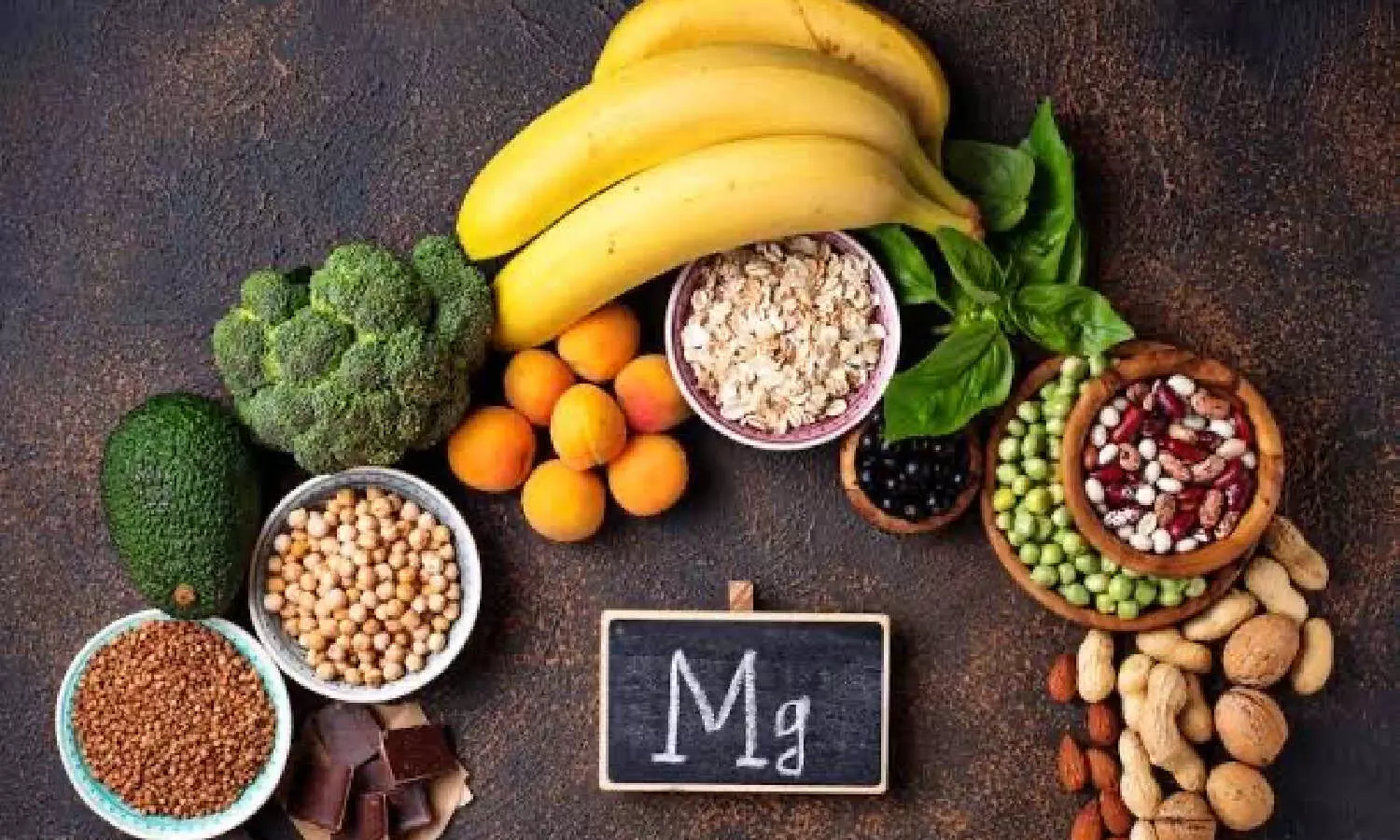How magnesium-rich food improves your sleep, reduces anxiety, balances hormones
Once a footnote in nutrition labels, magnesium has hit new stardom in diet-conscious nation
By Anoushka Caroline Williams
How magnesium-rich food improves your sleep, reduces anxiety, balances hormones
Hyderabad: Magnesium, once a footnote in nutrition labels, has become a headline act in wellness circles, supplement routines, and doctor consultations alike. Social media is abuzz with influencers crediting it for better sleep, reduced anxiety, and hormone balance.
Functional medicine practitioners are recommending it for a range of issues, from muscle cramps to migraines. Even conventional doctors are weighing in on its importance for long-term health.
So, what’s behind the sudden surge in magnesium interest? We spoke to nutritionists, general physicians, and researchers to understand why magnesium is having a moment, and why it matters.
A Silent Deficiency, Now Widely Recognized
“Magnesium is one of the most common nutrient deficiencies we see today, especially in urban populations,” says Dr. Radhika Mehta, a clinical nutritionist speaking to NewsMeter. “And it’s often overlooked because the symptoms are non-specific, fatigue, anxiety, poor sleep, muscle tightness, even PMS.”
According to a 2022 review published in the Indian Journal of Endocrinology and Metabolism, subclinical magnesium deficiency may affect up to 60% of adults, largely due to modern dietary patterns low in whole grains, nuts, and leafy greens.
The Stress-Magnesium Cycle
One of the key reasons for magnesium’s newfound attention is its link to chronic stress, both as a cause and effect.
“Magnesium is involved in regulating the nervous system, particularly in calming the body’s stress response,” explains Dr. Vikram Jha, a general physician. “But the more stressed you are, the more magnesium your body uses up. That’s why it becomes a vicious cycle.”
Increased cortisol levels, the body’s primary stress hormone, can deplete magnesium stores, making people more sensitive to stress over time. This has prompted many wellness experts to recommend magnesium supplementation as part of stress management protocols.
Magnesium and Sleep: A Strong Connection
Sleep experts have also brought magnesium into the spotlight for its role in promoting restful sleep.
“Magnesium helps activate the parasympathetic nervous system, the one responsible for relaxation,” says Dr. Asha Dhawan, a sleep specialist. “It also regulates melatonin production and supports deep sleep stages.”
Forms like magnesium glycinate and magnesium threonate are commonly recommended for those experiencing sleep disturbances, especially in cases where anxiety or overthinking interferes with rest.
Hormonal Health and Magnesium: A Growing Area of Focus
Magnesium’s role in hormonal regulation, especially for women, is another reason it’s trending.
“It’s involved in estrogen metabolism, blood sugar regulation, and even prostaglandin control, which affects period cramps,” says Dr Mehta.
Several small studies have found that magnesium, especially when combined with vitamin B6, may reduce PMS symptoms like bloating, mood swings, and breast tenderness. Some clinicians now recommend it as part of holistic care for hormonal balance.
Gut-Brain Axis and Mood Disorders
With rising awareness of the gut-brain connection, magnesium is being studied for its impact on neurotransmitter production, gut motility, and inflammation, all factors tied to anxiety and depression.
“Magnesium is required to synthesize serotonin and GABA, both of which are key neurotransmitters for mood regulation,” says Dr. Dhawan. “We’re seeing more psychiatrists integrate nutritional testing and magnesium-rich diets into treatment plans.”
Though not a replacement for medication, magnesium is increasingly being considered an adjunct tool for managing mild to moderate anxiety or depressive symptoms.
Not All Magnesium Is the Same
With dozens of supplements flooding the market, it’s important to note that different types of magnesium serve different functions:
“Don’t just pick a generic magnesium tablet. Match the form to your need, and ideally consult a healthcare professional before starting,” advises Dr. Menon.
Food Sources Are Still the Foundation
While supplements are helpful in cases of deficiency or therapeutic need, experts still recommend getting magnesium through food first.
Magnesium-rich foods include:
• Pumpkin seeds
• Spinach and other leafy greens
• Almonds, cashews
• Black beans
• Avocados
• Whole grains
• Dark chocolate (70% and above)
“Magnesium works best in synergy with other nutrients like B vitamins and potassium, which are naturally present in whole foods,” says Dr. Jha.
Testing and Supplement Safety
Most routine blood tests do not accurately reflect magnesium status, since only 1% of magnesium is found in the blood.
“We typically go by symptoms, diet history, and clinical judgment,” says Dr. Menon. “If needed, we check red blood cell magnesium or use supplementation trials to assess response.”
Excess magnesium from food is rare, but over-supplementation can cause digestive upset, especially diarrhea. People with kidney issues should avoid self-supplementing without medical guidance.
Conclusion: From Micro-Nutrient to Macro Impact
Magnesium’s rise from obscurity to central wellness concern reflects a broader shift in how people are approaching health, not just as treatment, but as prevention, balance, and resilience.
Whether for better sleep, calmer nerves, or hormonal support, magnesium has become a tool for people looking to better understand and care for their bodies in a fast-paced world.
“It’s not a miracle fix,” Dr. Dhawan reminds us. “But for many people, magnesium is a missing piece that helps the whole system work more smoothly.”